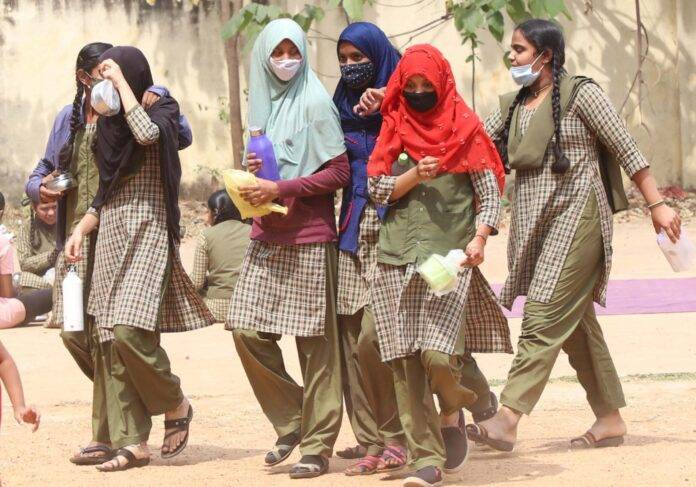New Delhi | A petition was filed in the Supreme Court on Tuesday challenging the order of the Karnataka High Court, which had dismissed all the petitions to allow the wearing of hijab in classrooms.
The petition, filed by two Muslim students Manan and Neeba Naaz, through advocate Anas Tanveer, said, “The petitioners humbly submit that the High Court has erred in creating a conflict between freedom of religion and freedom of conscience. , in which the court has concluded that those who practice religion cannot have a right of conscience.”
The petition said that the High Court failed to note that the Karnataka Education Act, 1983 and the rules made thereunder do not provide for any compulsory uniform to be worn by the students.
According to the petition, “The High Court has failed to note that the right to wear the hijab is protected as a part of the right of conscience under Article 25 of the Constitution. It is submitted that since the right of conscience is essentially is an individual right, therefore the ‘essential religious practice test’ should not have been invoked by the Hon’ble High Court in this instant case.”
The petition further states, “The High Court has failed to note that the Indian legal system explicitly recognizes the wearing/carrying of religious symbols. It is pertinent to note that section 129 of the Motor Vehicles Act, 1988, exempts turban-wearing Sikhs from wearing helmets.”
It also referred to the rules framed by the Ministry of Civil Aviation, in which Sikhs are allowed to carry kirpans in aircraft.
The plea said that this “step-motherly treatment” of government officials has prevented the students from practicing their faith, resulting in unwanted law and order situations.
It said, “However, the High Court has utterly failed to apply its mind in its order and it has taken into account the gravity of the situation as well as the fundamental aspect of essential religious practices enshrined under Article 25 of the Constitution of India.” unable to understand.”
“Wearing hijab is not a mandatory part of Islam. The prescribing of uniform is constitutional and students cannot object to it,” the high court said in its judgment on Tuesday.
A bench headed by Chief Justice Ritu Raj Awasthi said, “We are of the view that wearing hijab by Muslim women is not a compulsory practice in the Islamic faith. The fixation of school uniform is a reasonable restriction and is constitutionally permissible, on which Students cannot object.”










